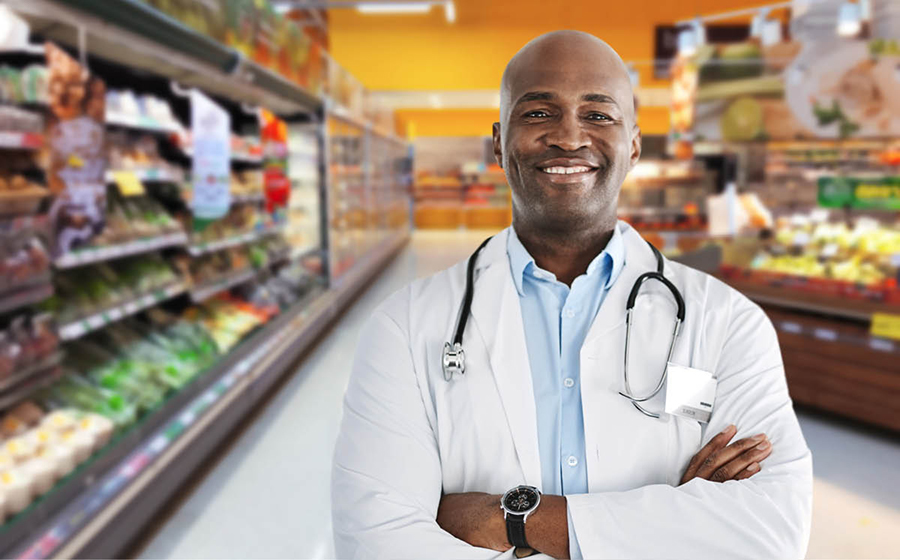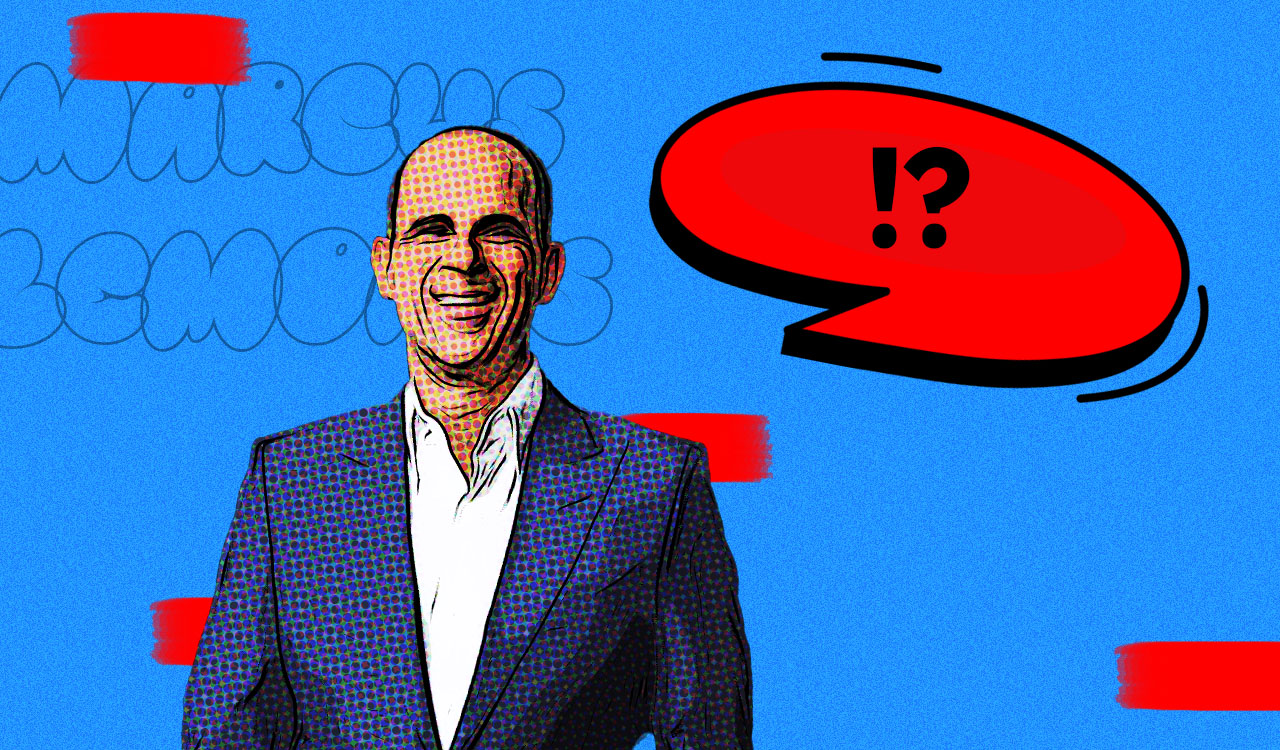Imagine you\’re a retailer selling a line of product that well-informed customers increasingly perceive can confer substantial benefit on them. Well, supermarket retailers are in just that position as consumers become convinced that to some degree, their health and wellness depends on proper eating.
As a result, over the span of a few years, many supermarket operators have made big product changes, backing away from products that many customers no longer will buy, such as those containing high-fructose corn syrup, hormones and antibiotics. Best known for leading that charge is Whole Foods, although it was neither the first nor the last to ban a lot of such product from the store. But it was the first to reap big reputational and financial rewards by so doing.
Let\’s further imagine that you\’re the operator of a supermarket that has made serious product changes across the whole store. Wouldn\’t it be a good idea of have a top executive – a Chief Medical Officer – to back the health-related mission of the chain? The CMO concept seems to be a solid one, yet to a great extent, they\’re nowhere to be found at food-retailing enterprises. With just a few exceptions, customers are dependent on their own ad hoc learnings about food health solutions instead of being able to look to the supermarket for credible expertise. The exceptions to are found at smaller specialty chains, not so much at major supermarket chains.
First In
The first chain to bring a Chief Medical Officer, Dr. Todd Pesek, on board appears to be Heinen\’s Fine Foods, a chain of 23 stores based in Cleveland and located in northeast Ohio. Earlier this year, Earth Fare, a chain of 50 stores based in Asheville, North Carolina, hired a CMO, Dr. Angela Hind. Earth Fare stores are in the Southeast and the Midwest.
So what do these two medical officers do? Generally, they\’re responsible for legitimacy in making sure shoppers know that the stores offer mostly or entirely product lines that may boost their health outlooks. This is done by making sure the buying process delivers the type of product the store touts, then informing customers about product attributes.
Earth Fare\’s medical officer conducts Wellness Clinics for shoppers and store employees. The most important aspect of the latter is informing employees about the benefits of certain eating regimens and how to talk to shoppers about them. As a bonus, the employees themselves may be the best beneficiaries. In the case of Heinen\’s, the job of the medical officer is similar, plus he writes a frequent blog for store shoppers that underscores the benefits of certain products, especially seasonal product.
Midlevel Chains Lead
In some ways, it may seem strange that two midlevel chains are leaders in employing medical officers, but it actually makes sense. Smaller chains can better control the type of product that enters the store and make stronger and more generalized claims about product. Larger chains must appeal to a broader shopper constituency by offering product that has multiple attributes, such as having a well-known brand name or is inexpensive. There may not be much of a health dimension to those products. But there is a solution to the quandary facing large chains. They are developing ranges of health-oriented private brands that can then be aggressively marketed, lessening the need for a CMO to do that job.
Indeed, Kroger is doing just that with great success. Prior to that, Safeway developed a line of similar private brands and for a short time had a medical officer to help with the project. Safeway is now owned by Albertsons, which makes much use of the Safeway-developed private brands to this day.
Incidentally, I wonder why private label manufacturers don\’t bring aboard a medical officer to help in their own development of health-oriented product and to make such product known to their retail clients. Many very small chains lack the capacity or knowledge required to source health-related private brands, let alone to promote them.
Finally, the current tale of medical officers highlights something that retailers outside the food domain could consider. If they have a product line that holds out a lot of promise to consumers, get a credible expert to make that known. The travel industry could benefit by giving customers personalized and respected expert information about healthy/safe travel destinations. The same goes for the wellness industry that produces such a broad array of health supplements and topicals.




